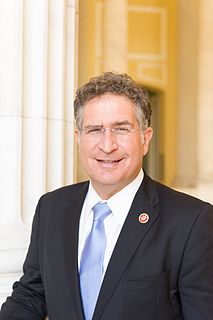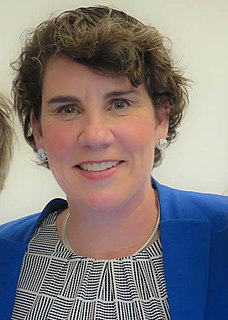A Quote by John E. McDonough
While the ACA's insurance expansions and reforms represent a great leap forward for the U.S., it is also true that when fully implemented by 2018, the U.S. will still have the most inefficient, wasteful, and unfair health insurance system of any advanced nation, even with the ACA reforms.
Related Quotes
The Affordable Care Act is a huge problem. [Repealing the ACA is] going to have huge implications. We have millennials that live in Boston that are on their parents' health insurance. The businesses have hired them and have been able to hire more people because they have been able to be on their own health insurance. We have seniors in our city who have preexisting conditions, or something called a "donut hole," which is a prescription drug [gap] in Medicare. Whatever changes they make could have detrimental effects on people's health care, but also on the economy.
My biggest fear, that 27 percent of Americans under 65 have an existing health condition that, without the protections of the Affordable Care Act, would mean they would - could be automatically excluded from insurance coverage. Before the ACA, they wouldn't have been able to get insurance coverage on the individual market, you know, if you're a freelancer or if you had a small business or the like.
We have health insurance companies playing a major role in the provision of healthcare, both to the employed whose employers provide health insurance, and to those who are working but on their own are not able to afford it and their employers either don't provide it, or don't provide it at an affordable price. We are still struggling. We've made a lot of progress. Ten million Americans now have insurance who didn't have it before the Affordable Care Act, and that is a great step forward.
The problem of giving health care to everybody cannot be solved so long as we're spending huge sums of money for war. Already we have a very wasteful healthcare system, the most wasteful healthcare system in the world. I mean, we spend the most money and still have 40 million people without insurance. Compare us to Cuba. Cuba is our enemy, run by a dictator, Fidel Castro. But people in Cuba get health care at least equal to that of the United States - with very scarce resources. So I think this issue is the most important domestic issue.
As a physician and a U.S. senator, I have warned since the very beginning about many troubling aspects of Mr. Obama's unprecedented health-insurance mandate. Not only does he believe he can order you to buy insurance, the president also incorrectly equates health insurance coverage with medical care.
Health insurance, which is exceedingly difficult to secure as an individual in New York. Obamacare, while certainly better than nothing, is pretty awful, and if you have a complicated health history, as I do, you need premium insurance, which means private insurance. The challenge, though, is finding a company that will give you the privilege of paying up to $1,400 a month for it. When I didn't have a job, I spent more time thinking about insurance - not just paying for it, but securing it in the first place - than I wanted to.
The premise of insurance is to spread the risk. It's the premise of homeowner's insurance, of car insurance, and of health insurance. It's one reason why it's important to have insurance when you're healthy, so that when you get sick, you won't go sign up just when you get sick, because that increases the cost for everyone.





























